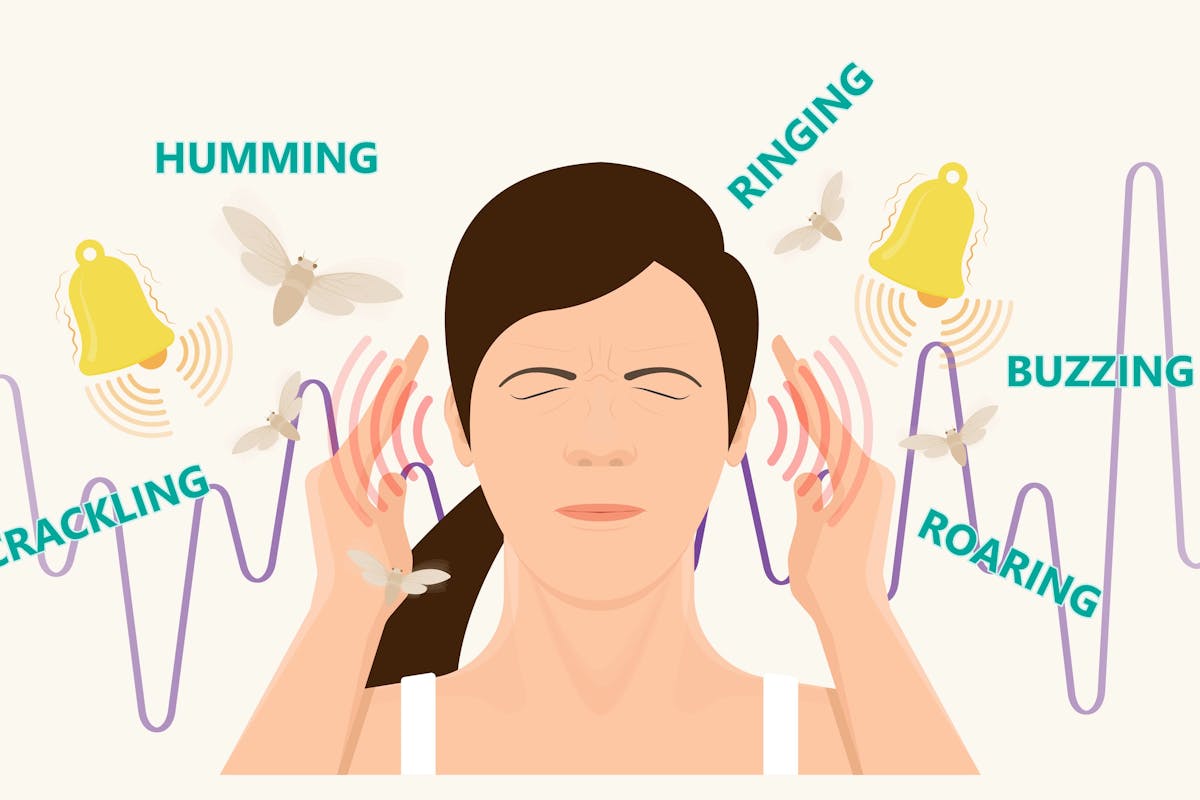What Causes Ringing in the Ears?

Ringing in the ears can be more than an annoyance. For some, it can disrupt concentration, impact hearing, and even interfere with sleep. It’s a condition called tinnitus that, unfortunately, becomes more common as we grow older. In honor of Tinnitus Awareness Week, an advocacy week initiated by the American Tinnitus Association, we share information on causes and tips for managing it.
What Is Tinnitus?
A buzzing, ringing, or whirring in the ears is likely tinnitus. It can be persistent or intermittent. Some people find it gets worse in the evenings, especially after going to bed at night.
While scientists aren’t certain what causes the condition to occur, they have identified what they believe are risk factors, including:
- Age: People over the age of 60 experience higher incidences of tinnitus than younger people.
- Loud noise: Prolonged exposure to loud noise, such as shooting firearms, listening to music on headphones, or a noisy work environment can cause tinnitus. As can being close to a sudden, explosive noise.
- Medical issues: Some health conditions are linked to tinnitus. Those may include heart disease, thyroid disorder, high blood pressure, diabetes, allergies, and more.
- Lifestyle: Though research can’t tell us why, some lifestyle choices also seem to increase the odds of developing tinnitus. Common ones include smoking, alcohol, and too much caffeine consumption.
Can Tinnitus Be Treated?
One frustration for people who develop tinnitus is that there is presently no cure for the condition. But you can take steps that may help minimize or mask ringing in the ears. If you suffer from tinnitus, here are a few suggestions to try:
- See the doctor: Begin by making an appointment with your primary care physician. There may be an undiagnosed health condition that is causing the problem. Issues like anemia and thyroid disease can typically be treated, resulting in the tinnitus resolving too.
- Have a hearing test: If you haven’t already, schedule an exam with an audiologist. You might have hearing loss significant enough to require hearing aids. Being better able to hear the sounds around you may lessen the ringing or buzzing sounds caused by tinnitus.
- Try sound therapy: While it won’t make the tinnitus go away, sound can help redirect how you react to the ringing or buzzing. Listening to a white noise machine, streaming nature sounds, or playing soft, soothing music might all be worth trying.
- Explore behavioral therapy: Another way to manage this condition is with the use of cognitive behavioral therapy (CBT). Through CBT, a person with tinnitus learns to avoid the negative thoughts associated with the condition, as well as methods for shifting their attention away from the ringing or buzzing sounds. CBT is a widely accepted method of managing tinnitus.
By exploring different ways to better cope with tinnitus, you can help improve your quality of life and make the most of your retirement years.
Peace of Mind for Seniors and Families
Another way you can enhance your quality of life during retirement is to invest in a mobile monitoring unit. In the event you are alone and experience a medical emergency, you can summon help with the press of a button. Call 1-844-203-5617 to learn more today!